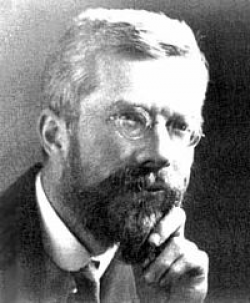Sir Ronald Aylmer Fisher

- Born
- 17 February 1890
- Died
- 29 July 1962 (age 72)
Sir Ronald Aylmer Fisher was a leading statistician and geneticist, who applied statistical procedures in the design of scientific experiments.
Fisher went to Harrow School, and at the age of 16 was awarded the Neeld Medal in a mathematics essay competition before studying mathematics and physics at the University of Cambridge.
On being awarded a scholarship to Gonville and Caius College in Cambridge, Fisher studied Mendelian genetics and in 1911 was a founding member of the Eugenics Society at the university. His enthusiasm for statistics and genetics grew significantly during the period when he began writing reviews for Eugenic Review, having several items published on the subject of biometrics.
In 1919 he became the statistician at the then Rothamsted Experimental Station in Hertfordshire, and carried out statistical work on the plant breeding experiments that were conducted there. In 1925 he published Statistical Methods for Research Workers which remained in print for fifty years. The work he conducted on plant breeding led to his therories about gene dominance and fitness, published in 1930 as The Genetical Theory of Natural Selection.
Not only was he the most original and constructive of the architects of the neo-Darwinian synthesis. Fisher also was the father of modern statistics and experimental design. He therefore could be said to have provided researchers in biology and medicine with their most important research tools, as well as with the modern version of biology's central theorem.
Richard Dawkins, 2010.
Fisher developed the concept of the analysis of variance, known as ANOVA. This was a statistical approach that allowed experiments to address a number of questions at the same time.
Fisher became a leading figure in the neo-Darwinian movement of ideas. He was also the original author of the idea of heterozygote advantage.
He was elected as a Fellow of the Royal Society and was knighted in 1956.



